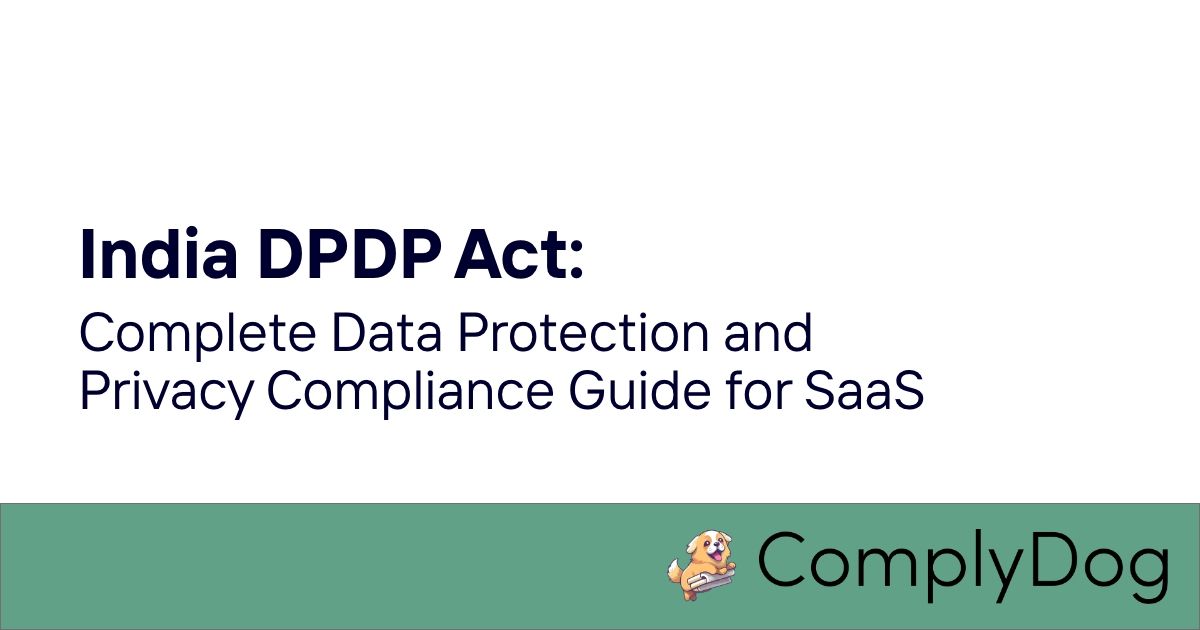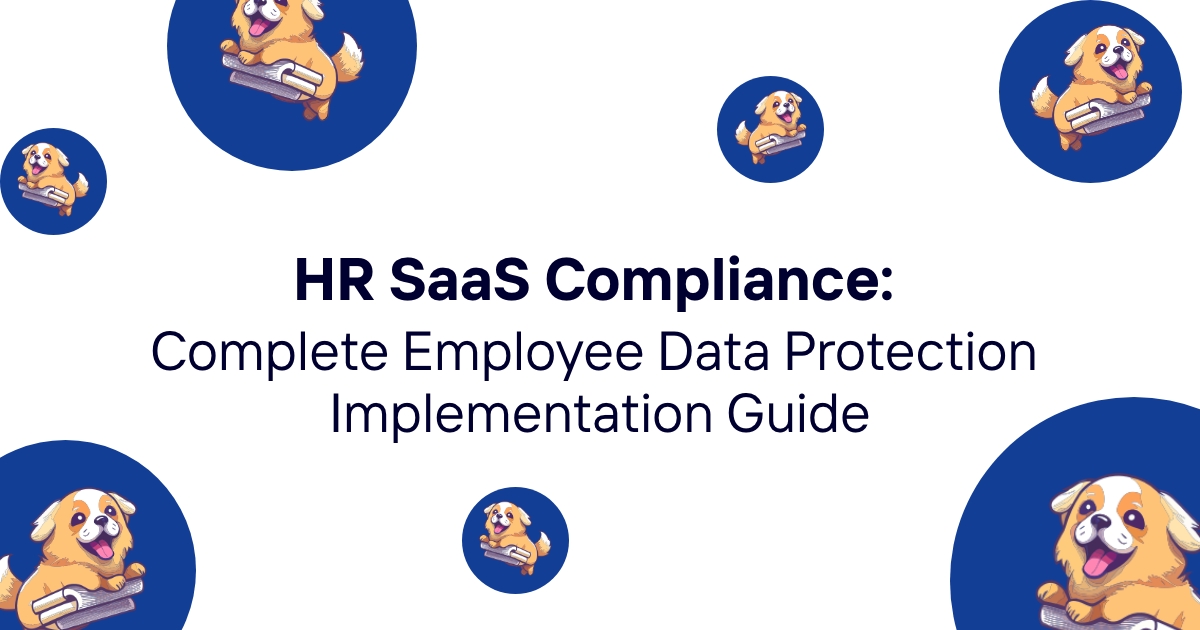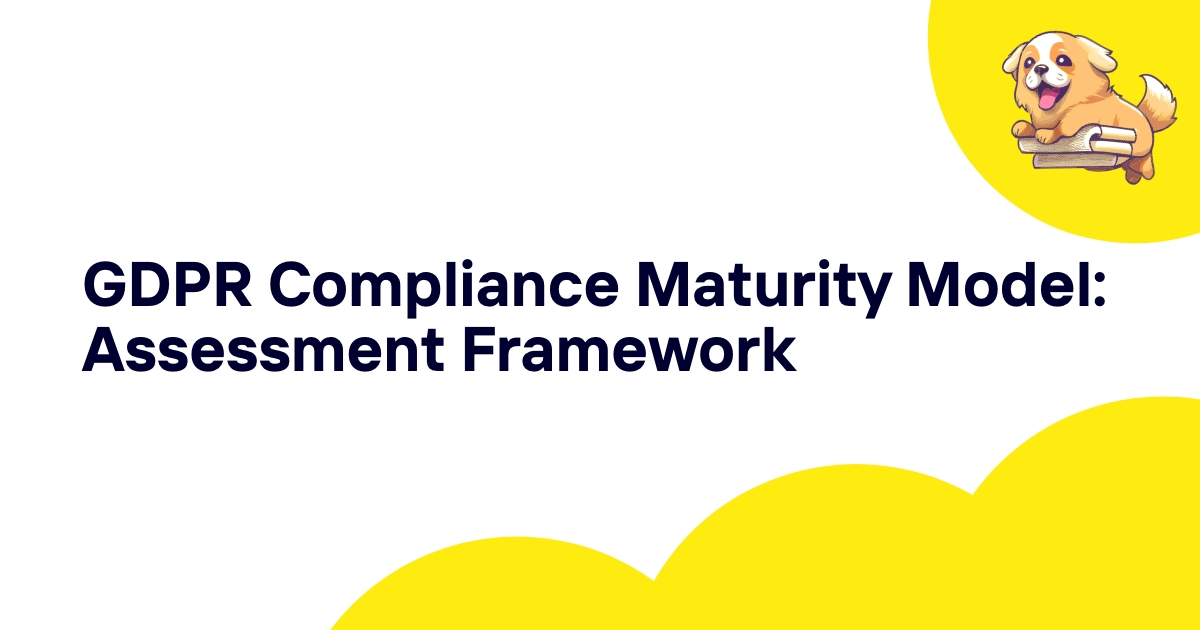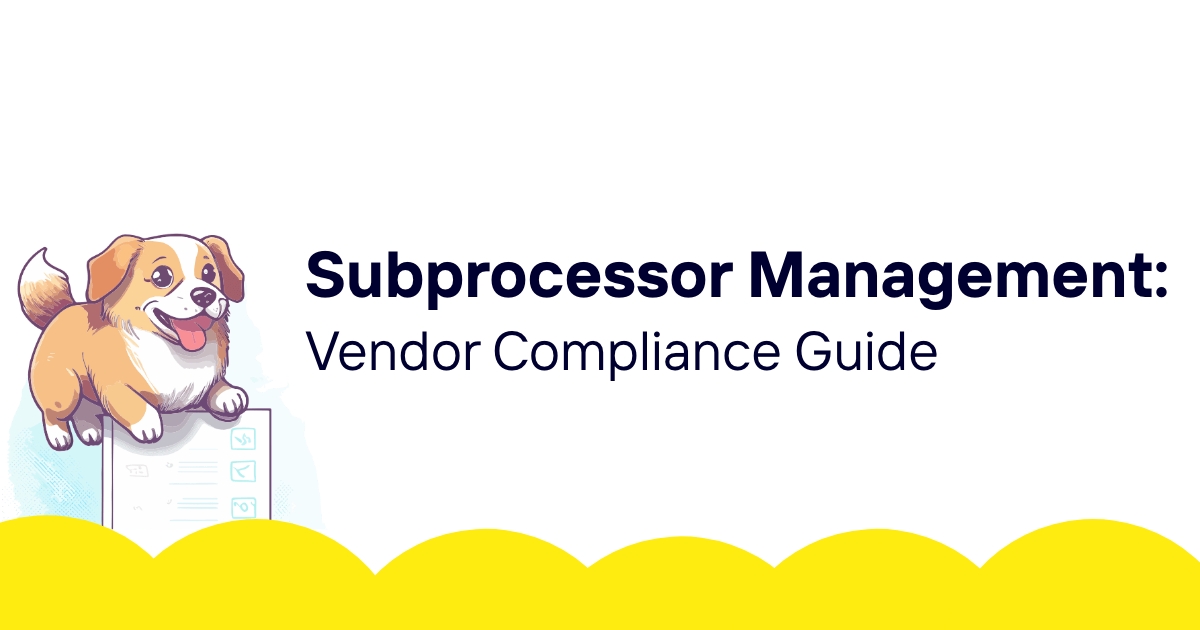India's Digital Personal Data Protection Act (DPDP Act) 2023 represents a landmark shift in the world's largest democracy's approach to data protection, creating comprehensive privacy obligations for SaaS companies serving over 1.4 billion potential users. The DPDP Act combines modern privacy principles with distinctly Indian perspectives on digital governance and economic development.
The DPDP Act applies to processing of digital personal data within India and processing related to offering goods or services to individuals in India, regardless of where the processing occurs. This broad territorial scope means most international SaaS platforms need DPDP compliance when serving Indian customers or collecting data from Indian users.
India's approach to data protection emphasizes digital empowerment while supporting the country's position as a global technology hub. The DPDP Act creates privacy rights that enable individuals to control their personal data while providing flexibility for businesses to innovate and serve India's rapidly growing digital economy.
The Indian market represents enormous opportunities for SaaS companies, with massive digital transformation initiatives, growing enterprise technology adoption, and government programs promoting cloud computing and digital services. DPDP compliance enables SaaS companies to serve this crucial market while building trust with Indian customers and regulatory authorities.
Understanding DPDP compliance is essential for SaaS companies planning to serve global markets, as India's privacy framework influences other developing economies and creates precedents for digital governance that will affect international privacy law development. ComplyDog helps SaaS platforms navigate Indian privacy requirements alongside other international frameworks through comprehensive compliance management that addresses the DPDP Act's unique characteristics.
India DPDP Act Overview for SaaS Companies
The DPDP Act creates comprehensive data protection obligations that apply broadly to SaaS companies while reflecting India's unique approach to balancing privacy protection with digital economic growth.
DPDP Territorial Scope:
The DPDP Act applies to processing of digital personal data within India by any person, and to processing outside India if it relates to offering goods or services to individuals in India or systematic monitoring of individuals in India.
This expansive territorial scope means SaaS platforms with Indian customers, users, or data collection activities need DPDP compliance regardless of company location, infrastructure, or business model.
Personal Data Definition:
The DPDP Act defines personal data as data about an individual who is identifiable in relation to such data. This includes user accounts, device identifiers, behavioral analytics, location data, and any information that can identify individuals directly or in combination.
The definition emphasizes practical identifiability in the digital context, making it important to consider how various data types collected by SaaS platforms can identify Indian users.
Digital Personal Data Focus:
The DPDP Act specifically covers digital personal data, excluding offline data processing from its scope. This focus reflects India's emphasis on digital governance and the country's rapid digital transformation.
SaaS platforms inherently process digital data, making them subject to comprehensive DPDP obligations for all personal data processing activities related to Indian users.
Data Fiduciary and Data Processor Roles:
The DPDP Act distinguishes between Data Fiduciaries (who determine processing purposes and means) and Data Processors (who process data on behalf of fiduciaries). SaaS platforms typically serve both roles in different contexts.
Understanding these roles is crucial for applying appropriate DPDP obligations, from customer relationship management (fiduciary role) to hosting customer data (processor role).
Significant Data Fiduciary Designation:
The DPDP Act allows designation of Significant Data Fiduciaries based on volume, sensitivity, and risk factors, with enhanced obligations including Data Protection Impact Assessments and appointing Data Protection Officers.
Monitor regulatory guidance on Significant Data Fiduciary criteria and prepare for enhanced obligations if your SaaS platform meets designation thresholds.
For insights on managing comprehensive privacy frameworks in major markets, check out our South Korea PIPA guide which addresses similar extensive regulatory requirements.
DPDP Act Consent Framework
The DPDP Act establishes specific consent requirements that emphasize user empowerment while supporting practical business operations and platform functionality.
Consent Principles:
DPDP consent must be free, specific, informed, unconditional, and unambiguous. Individuals must clearly understand what personal data is being processed and for what purposes before providing consent.
Design consent mechanisms that provide clear information in appropriate Indian languages while respecting diverse cultural contexts and digital literacy levels across India's population.
Valid Consent Requirements:
Consent must be given through clear affirmative action, be specific to particular processing purposes, and allow withdrawal at any time without affecting the lawfulness of processing based on consent given before withdrawal.
Implement consent systems that provide granular choice about different processing activities while avoiding consent fatigue that could undermine genuine understanding.
Deemed Consent Provisions:
The DPDP Act allows deemed consent in specific circumstances including voluntary provision of data, publicly available data, and processing for legitimate uses to be specified by the government.
Monitor regulatory guidance on deemed consent applications while building consent systems that can adapt to evolving interpretations of legitimate business processing.
Consent for Children:
The DPDP Act requires verifiable parental consent for processing personal data of children under 18, with enhanced protection obligations that affect SaaS platforms serving younger users.
Implement age verification and parental consent systems that comply with Indian requirements while supporting legitimate educational, entertainment, and communication services for children and teenagers.
Consent Management Obligations:
Data Fiduciaries must provide easy mechanisms for individuals to withdraw consent and must respect withdrawal by ceasing processing activities that depend on the withdrawn consent.
Create consent withdrawal systems that provide practical control while clearly explaining how withdrawal affects platform functionality and service delivery.
Data Principal Rights Under DPDP
The DPDP Act provides comprehensive rights to Data Principals (individuals) that SaaS companies must support through appropriate systems and procedures while respecting Indian cultural and linguistic diversity.
Right to Information:
Data Principals have rights to obtain information about personal data processing including purposes, categories of data, retention periods, and details about data sharing with third parties.
Design information systems that can provide comprehensive details about data processing in appropriate languages while protecting business confidential information and other users' privacy.
Right of Access:
Individuals can request access to their personal data and information about processing activities, requiring SaaS platforms to provide comprehensive but understandable responses.
Implement access systems that can compile personal data from across platform components while presenting information in formats that are useful for Indian users with varying technical sophistication.
Right to Correction and Erasure:
Data Principals can request correction of inaccurate personal data and erasure when data is no longer necessary for processing purposes or when consent is withdrawn.
Build correction and erasure workflows that distinguish between factual errors and legitimate business information while respecting individual rights and platform operational needs.
Right to Data Portability:
The DPDP Act provides data portability rights that allow individuals to obtain their personal data in machine-readable format for transmission to other Data Fiduciaries when technically feasible.
Create portability features that provide useful data exports while protecting intellectual property and other users' information that might be intermingled with portable data.
Right to Grievance Redressal:
Data Principals have rights to effective grievance redressal mechanisms, requiring SaaS platforms to implement complaint handling systems that provide timely and effective responses.
Establish grievance handling systems that provide culturally appropriate customer service in relevant Indian languages while maintaining efficient resolution of privacy concerns and complaints.
DPDP Processing Requirements
The DPDP Act establishes specific obligations for personal data processing that affect how SaaS companies collect, use, and manage Indian personal data throughout its lifecycle.
Lawful Processing Basis:
Personal data processing must have lawful basis including consent, legitimate interests, legal obligations, or other grounds specified in the Act, requiring clear documentation of processing justification.
Document processing activities clearly and implement controls that ensure all personal data processing has appropriate lawful basis while supporting legitimate business operations.
Purpose Limitation:
Personal data must be processed only for purposes that are lawful, compatible with collection purposes, and communicated to Data Principals at the time of collection.
Implement purpose limitation controls that prevent unauthorized secondary use while supporting reasonable business evolution and customer service improvement.
Data Minimization:
Processing must be limited to personal data that is necessary for the specified purposes, requiring evaluation of data collection practices and retention policies.
Audit data collection to ensure all personal data serves specific business purposes while avoiding unnecessary information gathering that creates privacy risks without business value.
Data Quality Requirements:
Personal data must be complete, accurate, and kept up-to-date for processing purposes, affecting data management and quality assurance procedures throughout the data lifecycle.
Implement data quality processes that maintain appropriate accuracy while providing mechanisms for individuals to identify and correct information errors affecting their services.
Storage Limitation:
Personal data must not be stored for longer than necessary for processing purposes, requiring clear retention policies and automated deletion procedures.
Design retention management that balances business needs with privacy minimization while supporting legal compliance and customer service requirements.
DPDP Security and Data Protection
The DPDP Act requires comprehensive security measures to protect personal data against unauthorized access, use, disclosure, or destruction while supporting India's digital security objectives.
Data Security Safeguards:
Data Fiduciaries must implement reasonable security safeguards to prevent unauthorized access, use, disclosure, modification, or destruction of personal data through technical and organizational measures.
Design security architectures appropriate to the sensitivity and volume of Indian personal data while considering the threat landscape and available security technologies.
Breach Prevention and Response:
Implement measures to prevent data breaches and establish incident response procedures that can quickly identify, contain, and remediate security incidents affecting personal data.
Develop comprehensive incident response that addresses Indian notification requirements while coordinating with international breach obligations and business continuity needs.
Data Protection by Design:
While not explicitly required, implement data protection by design principles that integrate privacy safeguards into system architecture and business processes from development stages.
Build privacy protection into SaaS platform design rather than retrofitting compliance features, supporting both regulatory compliance and customer trust through proactive protection.
Regular Security Assessment:
Conduct regular assessments of security measures and data protection practices to ensure ongoing effectiveness against evolving threats and changing business operations.
Implement continuous security monitoring and improvement that addresses the dynamic nature of cybersecurity threats while maintaining operational efficiency.
Cross-Border Data Transfer Rules
The DPDP Act regulates international transfers of personal data through government-specified mechanisms that ensure adequate protection while supporting India's integration with the global digital economy.
Government Approval Framework:
The Indian government will specify countries and territories to which personal data can be transferred, creating a framework similar to adequacy decisions in other privacy laws.
Monitor government notifications about approved transfer destinations and prepare alternative mechanisms for transfers to countries that don't receive approval.
Restricted Transfer Categories:
Certain categories of personal data may be subject to transfer restrictions or storage requirements within India, as specified by government notifications and regulatory guidance.
Stay informed about data localization requirements and transfer restrictions that might affect SaaS platform architecture and international operations.
Contractual Transfer Mechanisms:
Implement appropriate contractual protections for international transfers that ensure receiving parties provide protection consistent with DPDP requirements.
Develop transfer agreements that satisfy Indian regulatory expectations while supporting international business operations and cloud infrastructure requirements.
Business Process Considerations:
Consider how cross-border transfer rules affect SaaS platform operations including customer support, analytics, backup and disaster recovery, and integration with global services.
Design international operations that comply with transfer restrictions while maintaining service quality and business efficiency through appropriate technical and contractual measures.
Indian Market and Cultural Considerations
Successfully implementing DPDP compliance requires understanding India's diverse cultural context, linguistic requirements, and business environment that affect privacy implementation strategies.
Linguistic Diversity:
India's linguistic diversity requires privacy communications in multiple languages to ensure accessibility for users across different regions and cultural backgrounds.
Develop privacy documentation in major Indian languages while ensuring accurate translation of legal concepts and privacy rights information.
Digital Literacy Variations:
India's population has varying levels of digital literacy, requiring privacy interfaces and communications that accommodate different levels of technical sophistication and online experience.
Design privacy controls and communications that are accessible to users with basic digital skills while providing advanced options for more sophisticated users.
Cultural Privacy Expectations:
Indian privacy expectations reflect diverse cultural values and regional differences that affect how privacy information should be presented and how customer interactions should be managed.
Adapt privacy communication approaches to respect cultural diversity while maintaining consistent privacy protection and compliance across all Indian users.
Government Digital Initiatives:
India's extensive government digital initiatives create opportunities for SaaS companies that demonstrate strong data protection while supporting digital inclusion and economic development.
Align privacy practices with India's digital governance objectives while building trust with both individual users and institutional customers including government agencies.
DPDP Compliance Implementation Strategy
Building effective DPDP compliance requires strategic approaches that address current requirements while preparing for regulatory evolution and implementation guidance from Indian authorities.
Regulatory Guidance Monitoring:
The DPDP Act requires extensive implementing regulations and guidance that will clarify specific compliance requirements and operational procedures.
Establish monitoring systems for regulatory developments and government notifications that affect DPDP compliance obligations and implementation requirements.
Compliance Architecture Design:
Design privacy compliance systems that can handle DPDP requirements while maintaining compatibility with other international privacy frameworks through unified but flexible implementations.
Build privacy technology that provides comprehensive protection for Indian users while supporting global operations and regulatory compliance across multiple jurisdictions.
Indian Market Engagement:
Develop engagement strategies with Indian regulatory authorities, industry associations, and privacy advocates that demonstrate commitment to Indian privacy protection and digital governance objectives.
Participate in regulatory consultations and industry initiatives that help shape DPDP implementation while demonstrating privacy leadership and commitment to Indian market success.
Scalable Implementation Planning:
Plan DPDP compliance that can scale with business growth in India while adapting to regulatory developments and evolving government guidance on specific implementation requirements.
Build compliance capabilities that support current operations while providing flexibility to address changing requirements as India's privacy regulatory framework develops.
Ready to succeed in India's massive digital market? Use ComplyDog and build comprehensive privacy programs that satisfy DPDP Act requirements while demonstrating commitment to Indian data protection and supporting business growth in the world's largest democracy and fastest-growing major economy.


















